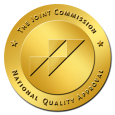5 Steps to Support an Alcoholic Family Member
When someone you love struggles with alcoholism, it can leave you feeling powerless, scared, and unsure of what to do. You may ask yourself: “Am I helping or enabling? How do I even start the conversation?”
At Louisville Addiction Center, we understand the unique challenges families face when addiction affects a loved one. This guide will help you support them with compassion while also protecting your own well-being.

Alcoholism Is a Disease, Not a Choice
Alcoholism—or Alcohol Use Disorder (AUD)—is a chronic brain disease. It’s not a matter of willpower or moral failure. Addiction changes brain chemistry, making it extremely difficult for someone to stop drinking without professional help.
This perspective can help you approach your loved one with understanding rather than judgment.
Recognizing the Signs of Alcohol Addiction
It’s not always easy to tell when someone’s drinking has become a problem. Here are some warning signs to watch for:
- Drinking alone or hiding alcohol use
- Missing work, school, or family commitments
- Legal or financial problems tied to drinking
- Health issues like blackouts, frequent hangovers, or injuries
- Mood swings, irritability, or defensiveness about alcohol use
If these sound familiar, it may be time to take action.
5 Steps to Support an Alcoholic Family Member
1️⃣ Approach With Compassion
Choose a private, calm time to talk. Avoid blame or criticism and use “I” statements:
“I’m concerned about how much you’ve been drinking and how it’s affecting your health.”
The goal isn’t to force them into treatment but to express your concern and keep the door open for future conversations.
2️⃣ Set Healthy Boundaries
Boundaries are critical for your loved one’s recovery and your own emotional health. Examples include:
✅ Not giving money that might support their drinking
✅ Refusing to lie or make excuses for them
✅ Saying “no” to requests that enable their addiction
Boundaries aren’t about punishing your loved one—they create space for accountability and change.
3️⃣ Avoid Enabling Behaviors
Enabling means unintentionally supporting their addiction by trying to “help” in ways that protect them from consequences. Common enabling behaviors include:
🚫 Making excuses for missed work or appointments
🚫 Covering up financial problems caused by drinking
🚫 Ignoring the issue to avoid conflict
Replace enabling with supportive, yet firm actions that encourage professional help.
4️⃣ Encourage Professional Treatment
Alcohol withdrawal can be dangerous and even life-threatening without medical supervision. At Louisville Addiction Center, we provide:
🌿 Medical detox programs for safe withdrawal management
🌿 Personalized treatment plans to address underlying issues
🌿 Family therapy programs to help heal relationships and build healthier dynamics
Encourage your loved one to consider professional treatment and offer to support them through the process.
5️⃣ Take Care of Yourself
Supporting someone with AUD is emotionally exhausting. Prioritize your own health by:
💛 Joining support groups like Al-Anon
💛 Seeing a therapist for emotional support
💛 Practicing self-care activities that help you recharge
You can’t help them effectively if you’re burned out.
The content published on Louisville Addiction Center blog pages is intended for general educational and informational purposes related to addiction, substance use disorders, detoxification, rehabilitation, mental health, and recovery support. Blog articles are designed to help readers better understand addiction-related topics and explore treatment concepts, but they are not a substitute for professional medical advice, diagnosis, or individualized treatment planning.
Addiction and co-occurring mental health conditions are complex medical issues that affect individuals differently based on many factors, including substance type, length of use, physical health, mental health history, medications, age, and social environment. Because of this variability, information discussed in blog articles—such as withdrawal symptoms, detox timelines, treatment approaches, medications, relapse risks, or recovery strategies—may not apply to every individual. Reading blog content should not replace consultation with licensed medical or behavioral health professionals.
If you or someone you know is experiencing a medical or mental health emergency, call 911 immediately or go to the nearest emergency room. Emergencies may include suspected overdose, seizures, difficulty breathing, chest pain, severe confusion, hallucinations with unsafe behavior, loss of consciousness, suicidal thoughts, or threats of harm to oneself or others. Louisville Addiction Center blog content is not intended for crisis intervention and should never be used in place of emergency care.
Detoxification from drugs or alcohol can involve serious medical risks, particularly with substances such as alcohol, benzodiazepines, opioids, and certain prescription medications. Withdrawal symptoms can escalate quickly and may become life-threatening without proper medical supervision. Any blog content describing detox, withdrawal, or substance cessation is provided to raise awareness and encourage safer decision-making—not to instruct readers to detox on their own. Attempting self-detox without medical oversight can be dangerous and is strongly discouraged.
Blog articles may discuss various addiction treatment options, including medical detox, residential or inpatient rehab, outpatient programs, therapy modalities, medication-assisted treatment, aftercare planning, and recovery support services. These discussions reflect commonly used, evidence-informed approaches but do not represent guarantees of effectiveness or suitability for every person. Treatment recommendations should always be based on a comprehensive assessment conducted by licensed professionals.
Information related to insurance coverage, treatment costs, or payment options that appears within blog content is provided for general informational purposes only. Insurance benefits vary widely depending on the individual’s plan, carrier, state regulations, and medical necessity criteria. Coverage details may change without notice, and no insurance-related statements on blog pages should be interpreted as a promise of coverage or payment. Louisville Addiction Center encourages readers to contact our admissions team directly to verify insurance benefits and eligibility before making treatment decisions.
Some blog posts may reference third-party studies, external organizations, medications, community resources, or harm-reduction concepts. These references are provided for educational context only and do not constitute endorsements. Louisville Addiction Center does not control third-party content and is not responsible for the accuracy, availability, or practices of external websites or organizations.
Blog content may also include general advice for families or loved ones supporting someone with addiction. While these discussions aim to be supportive and informative, every situation is unique. If there is an immediate safety concern—such as violence, overdose risk, child endangerment, or medical instability—emergency services or qualified professionals should be contacted right away rather than relying on online information.
Use of Louisville Addiction Center blog pages does not establish a provider–patient relationship. Submitting comments, contacting the center through a blog page, or reading articles does not guarantee admission to treatment or access to services. Recovery outcomes vary, and no specific results are promised or implied.
If you are struggling with substance use, withdrawal symptoms, or questions about treatment, we encourage you to seek guidance from licensed healthcare providers. For personalized information about treatment options or insurance verification, you may contact Louisville Addiction Center directly. For emergencies, call 911 immediately.
 | Medically Reviewed By: Board-Certified Psychiatrist and Addictionologist |
 | Clinically Reviewed By: Board Certified Clinical Social Worker |
Did you know that your insurance plan may cover medical detox?
Contact Us
Addiction and co-occurring disorders don’t have to control your life. Louisville Addiction Center is waiting with open arms to give you the tools necessary for lasting change. Reach out to us today to learn more.
Get Family Support Now
Supporting Families Through Recovery
We understand addiction affects the whole family. Our comprehensive family program helps rebuild trust and restore relationships.
Weekly Family Therapy Sessions
Educational Workshops
Support Groups
Communication Skills Training
Get Family Support Now

